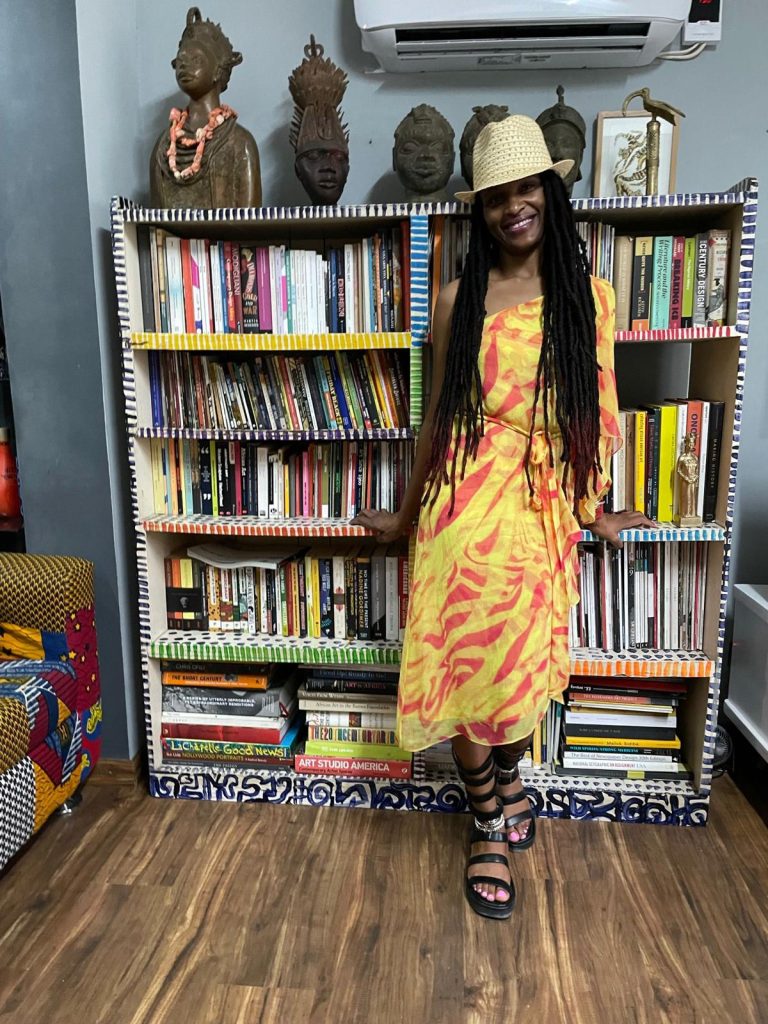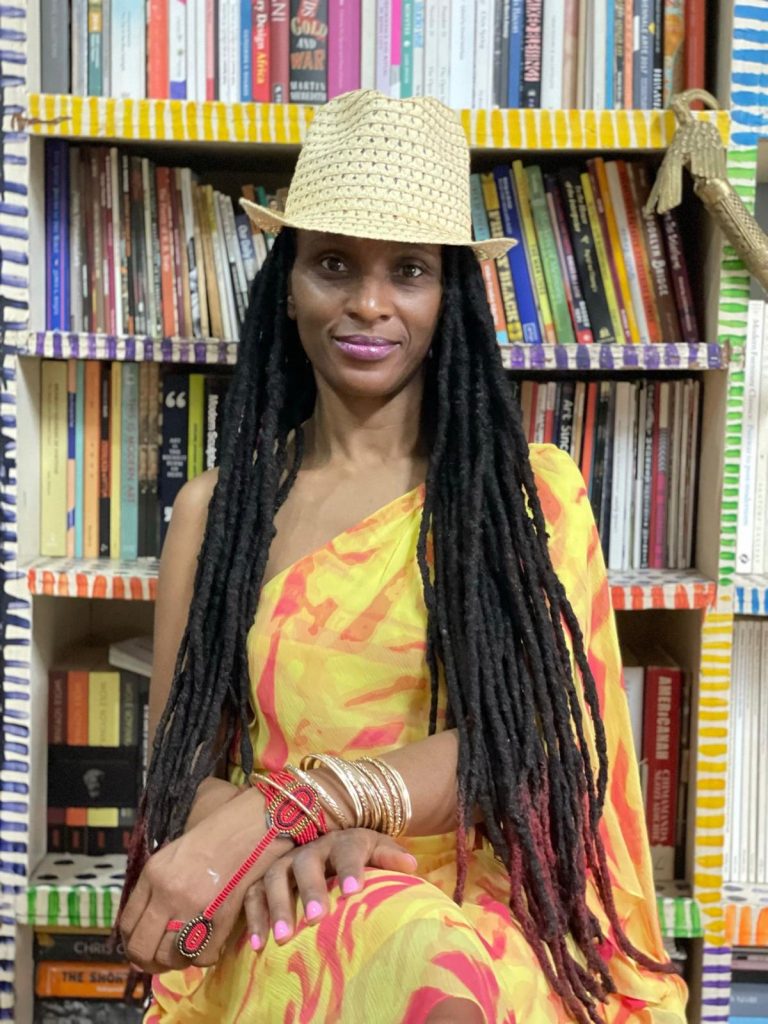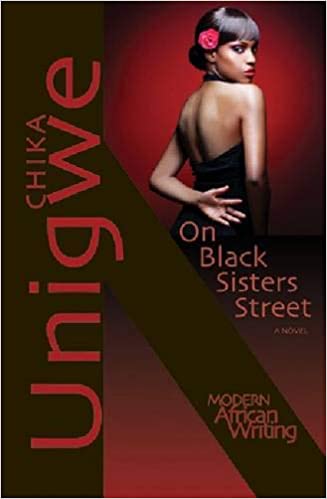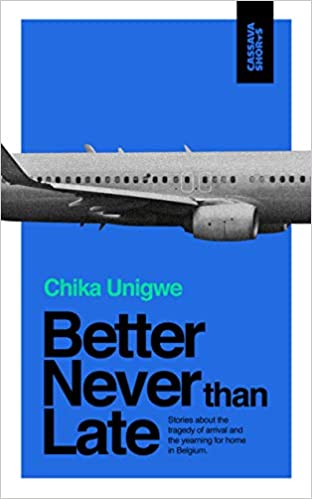On both personal and professional levels, Dr. Chika Unigwe has excelled and done things that are not for the faint of heart. She has not only demonstrated great success in writing and academics, but has made a difference as the only African to have a seat on the Belgian City Council, a position she used to give voice to people of color. Now working as an Assistant Professor at Georgia College and State University, Dr. Unigwe, a polyglot and mother of four, has her mind set on permanently eradicating the misconception about African literature as exotic and something that can be used to understand Africa. “You do not read European literature or American literature to understand Europe or to understand America”, she declared while speaking with Hamilton Odunze and Ejike Eze of Nigerian Parents Magazine’s editorial board. Find out more about Dr. Unigwe, her mission and hope that African literature will surmount the perception of it as “vitamin supplements that you are supposed to take” to cure your misunderstanding of Africa. Enjoy the interview.

NPM: Dr. Unigwe, thank you for joining us at Nigerian Parents Magazine for this interview.
UNIGWE: Thank you for having me. It is my pleasure.
NPM: We have been reading your work and seeing all the rave reviews. There is a lot of respect for what you do, and we believe that there is a level of discipline you acquired growing up that has contributed to your success. Let us start from the beginning, therefore. Tell us about your parents and what it was like growing up.
UNIGWE: Thank you. I was born and raised in Enugu. I left Enugu to go to boarding school in Abuja when I entered high school. I was in boarding school for six years in Abuja. That was the first time that I lived outside Enugu for an extended period of time. I am the sixth of seven children.
I was lucky to have supportive parents. I always wanted to be a writer. That was the only thing I wanted to do. I remember being a child and having these diaries in which I wrote poems and things. Every time my parents traveled out of the country, they made sure to bring us back books. I remember being in elementary school, and a classmate of mine had a magazine called Highlights for Children. It is an American children’s magazine and it is still available up until today. I came back and I told my father that Ijeoma in my class had this magazine and I wanted it. My father got a subscription for my younger sister and me. All through primary school, maybe up to JS3, we got this magazine sent from America every single month.
My parents were middle class, but they gave us a sense that they are able to provide anything we needed. I had a happy childhood. One of the arguments I have with people and something that I am very particular about is corporal punishment. Some people say: “Oh, well, you know, you cannot really raise children without beating your children”. And I say to them that my parents never hit me. Not once. I was never beaten. Not a single time. There was one time a teacher was flogging someone next to me, and her whip, cut my eye. My mother came to the school and raised hell. When I went off to boarding school, there was no flogging at my school. I have never flogged my children and I think that they are pretty well-behaved. I had a very happy childhood.

My sister and I attended Uzommiri Study Center organized by Opus Dei. There, we learned how to make dolls and how to bake and watched documentaries. It was at Uzommiri that I came across the works of Buchi Emecheta. That, in brief, was my childhood.
NPM: You bring up a point that we have always grappled with as Nigerian parents and that is the corporal punishment. There are all kinds of parenting styles and there are people who say you spare the rod, you spoil the child. Tell us what the alternatives were for you and your family. What did your parents do differently?
UNIGWE: I think my parents made it clear that if we disappointed them it was something we ought to be very ashamed of. So, I really lived in fear of disappointing my parents. The fear of disappointing them sort of kept me on the straight and narrow path pretty much most of the time. With my own kids – my husband and I have four boys – the way that we punished them was always using age-appropriate punishment. When they were very young, maybe two or three years old, we would ask them to go stand in a corner. You stood in a corner for an amount of time, or we reduced their playtime. My kids watched TV only during the weekends, and if I wanted to punish you, we took away your TV time. So, that weekend you could not watch TV. In addition, depending on the severity of the offense, if they had playdates, we canceled playdates. We made sure they always knew why we punished them and the punishment was always age appropriate. You can get your bedtime shortened. They hated that. They did not want their playtime cut; they did not want the TV time shortened. Those were very effective. I do not know that hitting them would have been any more effective, because, what happens is that sometimes children get used to being hit. I also think that punishment should not be punitive. It should be reformative. If you are looking to reform someone, you do not want to harden him or her to the point where the punishment no longer means anything.

NPM: We know you had a degree from the University of Nigeria and you studied English. Is there any particular influence in your life that made you go into studying English literature?
UNIGWE: No. I think I always enjoyed reading novels. It seemed like a fun thing to do – to be able to go off to college and spend all that time reading and analyzing novels. Well, it was a bit more than that. There were courses I absolutely hated. I thought that you went in, read novels and talked about novels or belonged to this massive book club (which, of course, it was not). Literature was just my interest.
NPM: I read somewhere that you speak Dutch. How did that come about?
UNIGWE: I met a Belgian man when I was at school in Nigeria. I got married in my final year, right after my degree exams, and I moved to Belgium to join him. He is from the North of Belgium. I believe that if you lived in a society you should try, as much as possible, not to assimilate, but to adapt to that society. I love languages. I love words. It is what I deal with. Therefore, when I moved to Belgium, I started taking lessons in Dutch. I spent the first summer doing intensive lessons at the university. I did that for two, three summers. Then, I started doing conversational classes. It was just a necessity. I was in a country where Dutch was being spoken. In addition, my in-laws challenged me. When I got married to their son, they started learning English. They were taking English lessons, and I was taking Dutch lessons. That was inspiring.
NPM: I read somewhere that you ran for city council. You were the first person without European heritage elected into the city council. What influenced you to run for office?
UNIGWE: I tend to complain a lot about things. I complain when things are not working well. I am an avid believer in not keeping quiet. Then, my father-in-law was the city councilor and he was good friends with the mayor. I knew the mayor of our city. One year, the mayor asked me to run because I was always going to him to complain about things. I said no. I did not think, first, that I was going to get a seat, and second, I was raising young kids and writing. I did not think that I had time to do all those things.
When the mayor invited the ambassador of Nigeria to our city- I lived in a city called Turnhout – the mayor and the ambassador of Nigeria went on a tour of all the cities where Nigerians lived to meet with the Nigerian community for introductions. When he came to our city, the mayor invited him to lunch, and invited me too. The mayor said to the Nigerian Ambassador: “you should convince your countrywoman to run for elections. I have been telling her and she has been saying no”. Being on the city council was a great experience. I am glad that I did because it gave the African community a visible face. There was a Pakistani man who ran a store. Every time he had issues, he would come to me. He would tell me it is easier to tell me than to go to the city council.

NPM: Let us talk about your work because it is fascinating. There are people who have stories in their heads but they just cannot get them out. What is your writing process?
UNIGWE: Well, it depends on how deep into the writing that I am. I just finished writing a novel recently.
I gave myself a number of words that I had to write every day. I am an erratic sleeper. Whenever I wake up is my morning, and I would work and then I go back to bed. That is how I stretch my 24 hours. Also now, I teach as well. Sometimes I wake up at three, I would say my prayers, and then I would start writing. I was writing 3000 words a day. Unless I did 3000 words a day, I would not rest. In three months, I had about 90,000 words. Then I could go back and edit. When I am editing, I am a lot less strict with myself. Because then all I do is go back, start from the beginning with what I have written, and then start working on them. For me, it is the number of words that indicate progress for me.
NPM: The mainstream media have written a lot about you. However, something I saw caught my eyes and my interest. They had written about you as one of the people that has the potential of defining where African literature goes in the next few years. Where do you see African Literature today? Where do you think that it is going to be in the next five to ten years?
UNIGWE: Well, thanks for that question. I am very passionate about African Literature. I think in 1952 or 1956 when Amos Tutuola became the first African writer published in the Anglophone world, I think it was his book The Palm Wine Drinkard. The narrative was that his writing was exotic. There was some sort of fetish to his writing. They said he wrote the way he spoke Yoruba. A few years later, Chinua Achebe published Things Fall Apart in 1958. In 1962, we had Efuru by Flora Nwapa. From 1958 with Things Fall Apart to 2000 when Heinemann publishers published the last book, which was A Squatter’s Tale by Ike Oguine, Heinemann publishers were publishing African literature with book covers that were rather bland. I found a review of Efuru (which came out when Efuru was published in 1966) which treated the novel like an anthropological texts and not like a novel that you would pick up and enjoy, not like a Sidney Sheldon or like Robert Ludlum. For a long time, the reading of African novels was seen as way to understand Africa.
After Chimamanda published Purple Hibiscus, we started seeing African writers published by commercial houses in the US and in the UK. These books started doing well. In the past 10 years, it is impossible to count the number of African writers published by commercial houses. It is almost as if every single year, for the past 15 years, there is an African novel on the shortlist or longlist for whatever big price that is there.
You can walk into an airport bookstore, and these books are there. These books are not only in university libraries or academic bookstores anymore. African writing is no longer just one kind of writing. It has become more difficult for people to box African writing into any one category. People are no longer thinking when they read My Sister the Serial Killer, they are reading about what it is like to live in Lagos in the 21st century. They are reading it as a novel, which is how they should read it.
This is also why, in the wake of the George Floyd killing when all these lists were being passed around by well-meaning progressives, black and white progressives, about black books to read to understand the black psyche and to understand America, it seemed funny to me, because suddenly, we are regressing to a point where these books were supposed to be read to understand a people. You do not read European literature or American literature to understand Europe or to understand America.
Where do I see it going in the next 10 years? I see it progressing in much the same way, where it is no longer something that you read for school. African writings are no longer vitamin supplements that you are supposed to take, that you may not necessarily enjoy. They have become writers that you pick up and read because you enjoy reading. It has been very interesting for me to see all the different genres that we are breaking into. There is hardly any literary genre where African writers are not winning prizes. What I hope happens in the next 10 to 15 years is that publishing on the continent becomes a lot more developed.
NPM: Let us talk about your own works. You have a new novel coming out. Start with that and walk your way backwards into your other novels.
UNIGWE: I have a book coming out in 2023 in the US and UK. Then we will see where else that we will sell the rights. It is a reimagination of the Myth of Hades and Persephone but set in Nigeria in 2012, set mostly in Enugu and very briefly in Atlanta, Georgia, which is where I live.
NPM: Tell us about the other books that are already out.
UNIGWE: The one that I am most excited about now, because we just had a French publication out two days ago, is On Black Sisters Street.

The French version is out, so it feels like a new work all over again. On Black Sisters Street tells the story of four Nigerian sex workers who ended up in Antwerp in Belgium. I had to work hard on that novel. It took me many years and lots of research because I did not know anything about the red light districts when I started writing it. I had to do my research. I had to go to the red light district of Antwerp. I had to talk to Nigerian sex workers like the women in my book. One of the things it did for me is that just being in that space, and knowing that it did not matter how I dressed, anybody seeing me there assumed I was a prostitute. I could feel the vulnerability of the women. I could translate that vulnerability into fiction. I think it really helped with the writing. It helped with creating my characters as authentically as I could.

Then there is my book Better Never Than Late, which is a collection of short stories that came out in 2019. It is interlinked stories of the same group of Nigerian immigrants, who live in Belgium. These were stories percolating in my head for a very long time.

Then there is Night Dancer that came out in 2013. It is set in Enugu and Kaduna and it tells the story of Nma who realizes after her single parent mother died that she judged her mother rather harshly. Now she starts trying to figure out the truth about her life. I also have a children’s book coming this year from Cassava Republic and I have a children’s book that came out last year from Ocado Books. It has been great trying to write for children. I did that in the past. I have two readers for Macmillan’s that were at some point used in schools in East Africa.
NPM: If asked to pick, who would you say is your best Nigerian author?
UNIGWE: I have no idea. I teach many Nigerian writers and I love all of them for many different reasons. One of the things I do very consciously is to put African writing on my syllabus every single year. It is a huge decision to choose whose book to put on and whose book to leave out because every single year, there is something new coming out. I organized an African Writers Festival in my college last year and we had a whole bunch of African writers including new Nigerian writers that I was introduced to at the festival.

NPM: What question have we not asked you, but which you would like to answer for our audience?
UNIGWE: Oh, my goodness, I have absolutely no idea. People should discover the joy of reading. There is this argument that reading creates empathy. I do not think that it creates empathy. I think that it encourages empathy. I strongly believe that the more you read, the more you realize that the world is bigger than your doorstep. In addition, if you can afford to buy books, please support our African writers, buy their books and go to their events. There are many Zoom events these days. It is always disappointing to have a Zoom event and you see more foreigners than Africans. And, if you teach, try to put as many African books as possible on your syllabus. It gives me a lot of pleasure every year to have my students exposed to writers that they would not otherwise have known. Many of them have read Achebe; I mean they read Things Fall Apart in high school. Things Fall Apart did something wonderful for African literature, but there are other books coming out these days and they are more contemporary. These new books make African literature seem less exotic and just seem more like mainstream literature.
NPM: Dr. Unigwe, thank you very much for speaking with us today. We look forward to your next book.
UNIGWE: Thank you. I appreciate it. Thank you very much for having m


